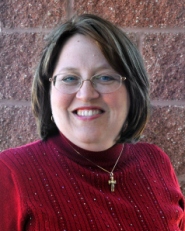 This question comes from Anne Costa (thanks, Anne!). While it’s true that all editors have a deep-rooted love of reading, it is also true that there are many different kinds of editors:
This question comes from Anne Costa (thanks, Anne!). While it’s true that all editors have a deep-rooted love of reading, it is also true that there are many different kinds of editors:
Acquisitions editors (that’s what I do) persuade busy speakers or others with established “platforms” to write a book. Or we sleuth out the gems in the slush pile. We also spend a lot of time in meetings. (See previous post.) But there are other kinds of editors, too.
- Developmental editors take a “rough” manuscript and work with its author to polish it up until it is the best version of itself.
- Managing editors manage the production process in-house, and supervise the many copyeditors and proofreaders who turn manuscripts into their final, finished form.
- Copyeditors, editorial assistants, and content editors (the latter work on magazines, online journals, websites, and with other forms of media). This is often the easiest place to get your foot in the proverbial publishing house door.
I was introduced to publishing in 1989 as a glorified intern in the publicity department of Bethany House Publishers. The editorial director used to wander the aisles, holding up flashcards with proposed book titles and asking hapless bystanders for instantaneous feedback. I guess I must have said something reasonable, because I was soon moved to editorial, where I worked under the supervision of several top-notch professionals, one of whom wrote me a letter encouraging me to go back to school so that I could become a “real” editor someday. I did . . . and around that time I started RCIA, where I met an editorial consultant who passed along a lead for a job opening at Servant. And the rest, as they say, is history.
Since this isn’t a path a lot of other people could follow, I decided to pose the question to some of my friends and associates in other houses. Here’s what they had to say! The first one is from my current boss and mentor here at Ave Maria Press:
Bob Hamma (Editorial Director, Ave Maria Press): “What do I look for in an editor? Someone who loves the Church, has studied its tradition, and understands that the Church is like a choir composed of many voices that don’t always sing together in harmony. Second, I look for someone who is inquisitive and is not afraid to look for a story that others are not seeing. The best editors I know are like journalists pursuing a lead. And third, good editors love the written word, and have the ability to help okay writers become very good writers. Editors don’t get a lot of credit for what they do. But they can find great satisfaction in knowing that they have helped others communicate well and thus built up the Body of Christ.”
Kathryn Deering (Freelance Editor and former editor at Vine Books/Servant, New Covenant magazine and Michigan Law Review): “Assuming one has the requisite skills (not always dependent on a college degree, though it helps), just find a way to get your foot in the door of a publishing house. Some hire interns. I worked a long time as an editorial assistant, then proofreader, permissions researcher, indexer, compiler, and copyeditor (all freelance). All that experience paid off, because as an editor I needed to wear different hats at different times.”
Joseph Durepos (Executive Editor, Loyola Press): How do you become an editor?
1.) Love books with an undying passion!
2.) Learn about the publishing industry. Subscribe to Shelf-Awareness.com, Publishers Weekly, NYTimes Book Review and Publishers Marketplace.com. Also follow countless good blogs and websites, like this one.
3.) Read books on editing, writing, and publishing, including memoirs of editors and writers.
4.) Take an editing course, attend writer’s conferences, go to public readings, get a job in a bookstore.
5.) Apply to company where you have an affinity for their content.
6.) Learn what an Oxford comma is.
7.) Reset and repeat.
David Dziena (Catechetical Editor, most recently with Our Sunday Visitor): “I became an associate editor and worked alongside a senior editor for a while. Many companies assign new editors the role of reprint editor – no one else wants the job, and it teaches new editors about a product line and the different stages of proofing.” (David is also the co-author of Catholic Prayer Book for the Separated and Divorced.)
Paul Thigpen (Bestselling Author of more than forty books and Editor, Tan Books): I had no formal editorial training (though I had a college degree in religious studies), but I began as an editorial assistant for a small religious publisher of periodicals and worked my way up to assistant editor. … Since then I’ve been editor of both books and periodicals. I agree with the others that you need to get your foot in the door with a publisher (even if it’s just as an editorial “gopher”) so that you can learn the ropes and gain the skills you need. I should add that if you’re planning to work as an editor for a Catholic publisher, it helps to have some theological formation, formal or otherwise.”
Claudia Volkman (Editorial Director, Franciscan/Servant, Circle Media, and Beacon): “Be willing to work in any capacity, and learn all facets of publishing. Get familiar with Chicago Manual of Style and Associated Press Style. Start with proofreading jobs, and read books on editing. Finally, find an editor who is willing to mentor you and network with editing colleagues.” (Note: writer’s conferences can be a great place to meet potential mentors.)
Do you have a question you’d like to “Ask a Catholic Editor”? Ask it in the comments below, or drop me a note at hsaxton@nd.edu. Thanks for asking!

Wow, thank you for all the wonderful responses!
LikeLike